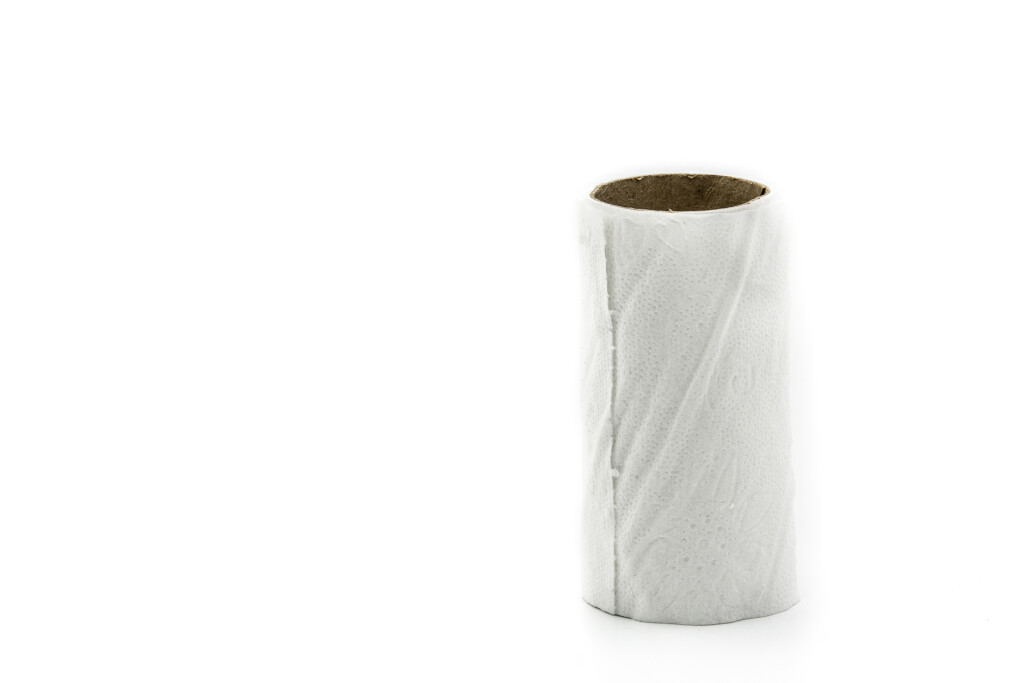Parashat Tzav/Shabbat Ha-gadol/Passover
Leviticus 6:1-8:36
This year I will place a new item on my seder plate – a nearly used-up roll of toilet paper. It will serve as a reminder and a prod to appreciate a person, an act and a tradition of holiness.
Our Torah portion continues to give details about how to perform the sacrificial rites. The simplest of sacrifices is the flour offering, the minhah – literally “the gift.” This simplest of gifts – “The Gift” – is one that even the poorest person could bring to God. And it includes in its ceremony the lifting of a small portion of flour, spices and oil that is burnt on the altar. This small amount is called the “azkarah – the memorial.” (Lev. 6:8) This term is never used for any other gift. None of the other types of sacrifice has any of its elements characterized as a reminder. But this simple sacrifice does. Commentators (see, for instance, Ibn Ezra to Lev. 2:2, where this term first appears) link remembering here with scent and aroma, the pleasing aroma that signifies God’s happiness in this simple offering, above all else.
Which brings me to my Passover seder plate. All of the special items on the plate have symbolic significance and help us remember the manifold elements of our founding myth, our exodus from slavery to freedom. And recent times have inspired many to add new items to the plate, so as to increase the richness of our recollections.
This year I will recall the story of Tobi Trakeltaub, a young woman originally from Munkacs, Hungary. She was enslaved in Auschwitz. When Passover arrived, without the means to observe the holiday in any way, she decided to write her own Haggadah. She saved four sheets of toilet paper and wrote out her personal Haggadah in Hebrew. Then she sewed a cloth cover for the tiny booklet, a cover on which she sewed the outline of the land of Israel. And she saved and treasured this little offering. In January, 1945, the Jews were forced by their murderers into a death march from Auschwitz so that they would not be saved by the oncoming Russian troops. During the march Tobi handed her Haggadah to her dear friend Aliza Klein and asked her to promise to bring it to Israel if she survived. Aliza fulfilled her promise; Tobi did not survive the march.
Here is my translation of her Haggadah in its entirety:
We want to celebrate but we are not able
We want to believe
And now the only thing that is left to us
And that they cannot take from us
Is memoryOnly this can give us hope for a better and more beautiful future
It is that we wish to think about, and not lower our headsAnd if God redeemed our ancestors from Egypt
God will save us from our bitter slavery
And return us to the land of our ancestors
May the few sheets of toilet paper on our seder plate be an azkarah – a small, precious reminder of that gift, and source of hope for God and for us.
Shabbat Shalom v’Hag Same`ah,
Rabbi David Greenstein
Subscribe to Rabbi Greenstein’s weekly d’var Torah
Photo: commercial stock image
Thank you to John Lasiter for suggesting the title and selecting an image for this Torah Sparks – Rabbi Greenstein
- Toby Stein: In Memoriam - Thu, Feb 8, 2024
- Faithfulness and Hope: Parashat Sh’lach - Thu, Jun 23, 2022
- Past Their Prime: Parashat B’ha`a lot’kha - Thu, Jun 16, 2022

